 W
WSilvano Arieti was a psychiatrist regarded as one of the world's foremost authorities on schizophrenia. He received his M.D. from the University of Pisa and left Italy soon after, due to the increasingly anti-Semitic racial policies of Benito Mussolini.
 W
WPaul Eugen Bleuler was a Swiss psychiatrist and eugenicist most notable for his contributions to the understanding of mental illness. He coined many psychiatric terms, such as "schizophrenia", "schizoid", "autism", depth psychology and what Sigmund Freud called "Bleuler's happily chosen term ambivalence".
 W
WKlaus Conrad was a German neurologist and psychiatrist with important contributions to neuropsychology and psychopathology. He joined the Nazi Party (NSDAP) in 1940. He was best known as a professor of psychiatry and neurology, and director of the University Psychiatric Hospital in Göttingen from 1958 until his death.
 W
WAlexandre Dorothée Marie Adriaan Charlotte Escher is a Dutch mental health advocate.
 W
WRoland Fischer was an experimental researcher and psychopharmacologist known for his early work on psychedelic drugs, schizophrenia, the perception-hallucination continuum model of altered states of consciousness, and for his work on gustation which later contributed to research supporting supertasting. Fischer was formerly professor of experimental psychiatry and associate professor of pharmacology at Ohio State University (1958-1971), and also held academic posts at George Washington University, Georgetown and Johns Hopkins University.
 W
WPéter Gaszner was a Hungarian psychiatrist, chief physician of the National Institute of Psychiatry and Neurology in Hungary, and professor of the Semmelweis University in Budapest.
 W
WThe Gene Illusion is a 2003 book by clinical psychologist Jay Joseph, in which the author challenges the evidence underlying genetic theories in psychiatry and psychology. Focusing primarily on twin and adoption studies, he attempts to debunk the methodologies used to establish genetic contributions to schizophrenia, criminal behaviour, and IQ. In the nature and nurture debate on the causes of mental disorders, Joseph's criticisms of genetic research in psychiatry have found their place among those who argue that the environment is overwhelmingly the cause of these disorders, particularly with psychiatry critic Jonathan Leo, and with Oliver James. It was also reviewed favorably in Choice and the British Journal of Learning Disabilities. Some of the conclusions of The Gene Illusion have been criticized in reviews of the book.
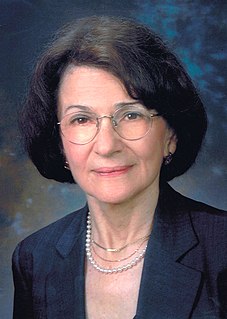 W
WPatricia Goldman-Rakic was an American professor of neuroscience, neurology, psychiatry and psychology at Yale University School of Medicine. She pioneered multidisciplinary research of the prefrontal cortex and working memory.
 W
WCarl Gustav Jung originally Karl Gustav Jung was a Swiss psychiatrist and psychoanalyst who founded analytical psychology. Jung's work was influential in the fields of psychiatry, anthropology, archaeology, literature, philosophy, and religious studies. Jung worked as a research scientist at the famous Burghölzli hospital, under Eugen Bleuler. During this time, he came to the attention of Sigmund Freud, the founder of psychoanalysis. The two men conducted a lengthy correspondence and collaborated, for a while, on a joint vision of human psychology.
 W
WKenneth S. Kendler is an American psychiatrist best known for this pioneering research in psychiatric genetics, particularly the genetic causes of schizophrenia. Kendler is one of the highest cited psychiatry researchers. Between 1990 and 1998 he was the 2nd highest cited psychiatrist, and for the 1997-2007 decade he was ranked 4th by Thomson Reuters' Science Watch. He has authored over 1,200 papers and in 2016 his h-index was 126. Kendler's group was also noted for the replication of a study of Avshalom Caspi on the interaction of stressful life events and a serotonin transporter polymorphism in the prediction of episodes of major depression.
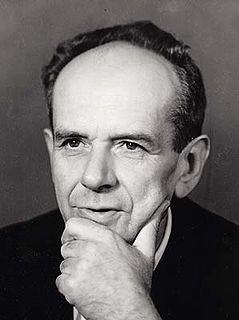 W
WAntoni Ignacy Tadeusz Kępiński was a Polish psychiatrist and philosopher. He is known as the originator of concepts of information metabolism (IM) and axiological psychiatry.
 W
WRonald David Laing, usually cited as R. D. Laing, was a Scottish psychiatrist who wrote extensively on mental illness – in particular, the experience of psychosis. Laing's views on the causes and treatment of psychopathological phenomena were influenced by his study of existential philosophy and ran counter to the chemical and electroshock methods that had become psychiatric orthodoxy. Taking the expressed feelings of the individual patient or client as valid descriptions of lived experience rather than simply as symptoms of mental illness, Laing regarded schizophrenia as a theory not a fact. Though associated in the public mind with anti-psychiatry he rejected the label. Politically, he was regarded as a thinker of the New Left. Laing was portrayed by David Tennant in the 2017 film Mad to Be Normal.
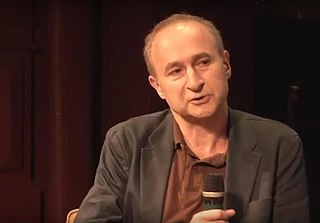 W
WJim van Os is a Dutch professor of Psychiatric Epidemiology and Public Mental Health at Utrecht University Medical Centre, the Netherlands.
 W
WPaul H. Patterson was a neuroscientist and the Anne P. and Benjamin F. Biaggini Professor of Biological Sciences at the California Institute of Technology.
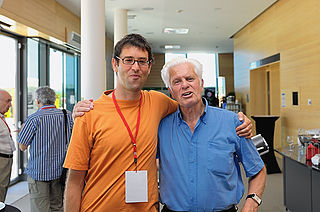 W
WMarius Anton Joannes Romme is a Dutch psychiatrist. He is best known for his work on hearing voices and regarded as the founder and principal theorist for the Hearing Voices Movement.
 W
WErnst Rüdin was a Swiss-born German psychiatrist, geneticist, eugenicist and Nazi. Rising to prominence under Emil Kraepelin and assuming his directorship at what is now called the Max Planck Institute of Psychiatry in Munich. While he has been credited as a pioneer of psychiatric inheritance studies, he also argued for, designed, justified and funded the mass sterilization and clinical killing of adults and children.
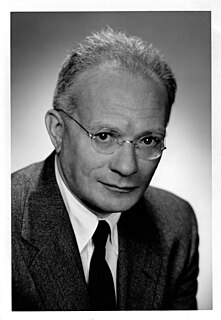 W
WDavid Shakow (1901–1981) was an American psychologist. He is perhaps best known for his development of the Scientist-Practitioner Model of graduate training for clinical psychologists, adopted by the American Psychological Association in 1949.
 W
WPeter Venables was a British psychologist who was the founder and former head of the department of Psychology at the University of York. He retired in 1988 to become Emeritus Professor at the University of York, where he continued to research.